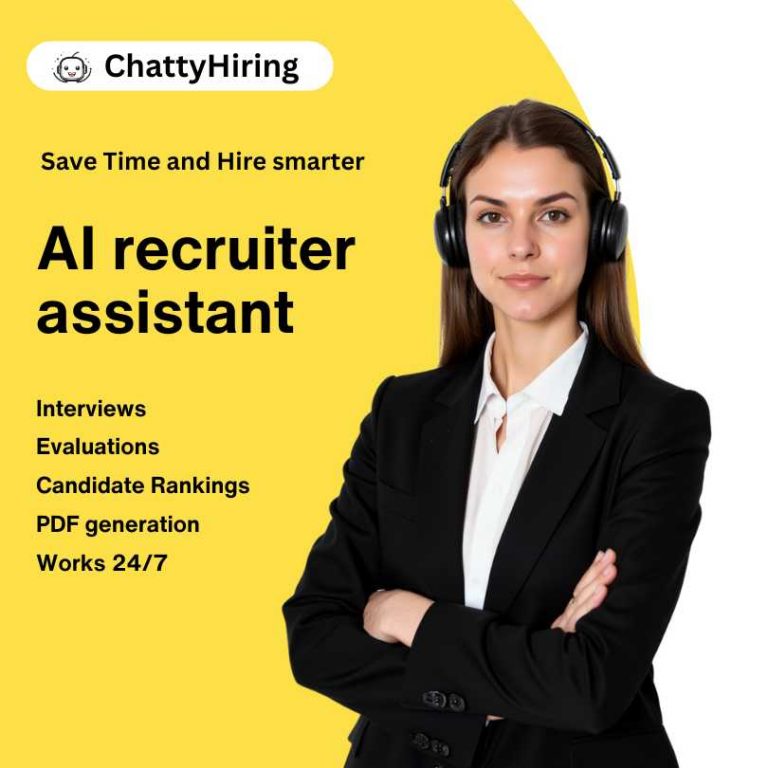In today’s competitive job market, the significance of effective recruitment assessment methods cannot be overstated. Organizations are increasingly recognizing that the right talent is a critical driver of success. As such, the recruitment process has evolved from merely filling vacancies to strategically identifying candidates who align with the company’s culture and objectives.
Effective assessment methods not only streamline the hiring process but also enhance the quality of hires, leading to improved employee performance and retention rates. Moreover, effective recruitment assessments help mitigate biases that can cloud judgment during hiring. By implementing structured and standardized evaluation techniques, organizations can ensure that all candidates are assessed on a level playing field.
This approach not only promotes fairness but also fosters a diverse workforce, which has been shown to drive innovation and creativity within teams. According to a report by HR Examiner, organizations that prioritize effective recruitment methods are better positioned to achieve their strategic goals and maintain a competitive edge in their industries.
Key Takeaways
- Effective recruitment assessment methods are crucial for identifying the right candidates and reducing turnover.
- Types of recruitment assessment methods include interviews, skills tests, personality assessments, and cognitive ability tests.
- Pre-employment testing plays a vital role in the recruitment process by providing valuable insights into a candidate’s abilities and fit for the role.
- Best practices for conducting interviews and assessments include using structured interview questions and providing a positive candidate experience.
- Behavioral assessments can help predict job performance by evaluating a candidate’s traits, values, and motivations.
Types of recruitment assessment methods
Recruitment assessment methods can be broadly categorized into several types, each serving a unique purpose in the hiring process. Traditional methods such as resumes and interviews have long been staples in recruitment; however, they often fall short in providing a comprehensive view of a candidate’s capabilities. To address this limitation, organizations are increasingly turning to a variety of innovative assessment techniques.
One popular method is skills testing, which evaluates a candidate’s proficiency in specific areas relevant to the job.
This can include technical skills assessments, coding challenges for software developers, or writing samples for content creators. Additionally, situational judgment tests (SJTs) present candidates with hypothetical scenarios they may encounter in the workplace, allowing employers to gauge their problem-solving abilities and decision-making skills.
These assessments provide valuable insights into how candidates might perform in real-world situations, making them an essential component of the recruitment process.
The role of pre-employment testing in the recruitment process

Pre-employment testing has emerged as a vital tool in the recruitment process, offering organizations a systematic way to evaluate candidates before making hiring decisions. These tests can encompass a range of assessments, including cognitive ability tests, personality assessments, and job simulations. By incorporating pre-employment testing into their hiring strategies, organizations can significantly reduce the risk of making poor hiring choices.
One of the primary advantages of pre-employment testing is its ability to predict job performance more accurately than traditional methods alone. Research has shown that cognitive ability tests, for instance, are strong predictors of job success across various industries. Furthermore, personality assessments can help identify candidates whose traits align with the organization’s culture and values.
By leveraging these tools, employers can make more informed decisions and ultimately select candidates who are not only qualified but also likely to thrive within the organization.
Best practices for conducting interviews and assessments
| Best Practices | Details |
|---|---|
| Prepare in advance | Review the candidate’s resume and prepare relevant questions. |
| Use structured interviews | Ask all candidates the same set of questions to ensure fairness. |
| Assess job-related skills | Include practical assessments or tests to evaluate the candidate’s skills. |
| Provide a positive experience | Ensure the interview process is respectful and welcoming for all candidates. |
| Document the interview | Take detailed notes to accurately compare candidates and make informed decisions. |
Conducting interviews and assessments effectively requires careful planning and execution. One best practice is to develop a structured interview format that includes standardized questions for all candidates. This approach ensures consistency in evaluation and minimizes biases that may arise from unstructured interviews.
Additionally, interviewers should be trained to recognize and mitigate their own biases during the assessment process. Another important aspect of conducting interviews is to create a positive candidate experience. Candidates who feel respected and valued during the interview process are more likely to view the organization favorably, regardless of the outcome.
Providing timely feedback and maintaining open lines of communication can enhance the overall experience for candidates. According to Talent Culture, organizations that prioritize candidate experience not only attract top talent but also build a strong employer brand that resonates with potential hires.
Using behavioral assessments to predict job performance
Behavioral assessments have gained traction as a powerful tool for predicting job performance. These assessments focus on understanding how candidates have behaved in past situations, providing insights into their potential future performance. By analyzing specific behaviors and competencies relevant to the job, employers can make more informed hiring decisions.
One effective method of behavioral assessment is the use of structured behavioral interviews (SBIs).
In SBIs, candidates are asked to provide examples of how they have handled specific situations in their previous roles.
This technique allows interviewers to assess not only the candidate’s skills but also their thought processes and problem-solving abilities.
Additionally, behavioral assessments can be complemented by reference checks that validate the candidate’s past performance and behavior in previous roles.
The impact of technology on recruitment assessment methods

Here is the rewritten text with 3-4 **The Evolution of Recruitment Assessment Methods**
**Streamlined Initial Screening with ATS**
Technology has revolutionized recruitment assessment methods, making them more efficient and effective than ever before. Applicant tracking systems (ATS) have streamlined the initial screening process by automating resume reviews and identifying qualified candidates based on predefined criteria. This technology allows recruiters to focus their effort on engaging with top candidates rather than sifting through countless applications.
**AI-Driven Assessments for Enhanced Accuracy**
Moreover, advancements in artificial intelligence (AI) have enabled organizations to implement sophisticated assessment tools that analyze candidate data more comprehensively. AI-driven assessments can evaluate cognitive abilities, personality traits, and even cultural fit by analyzing responses to various scenario or questions. This data-driven approach enhances the accuracy of predictions regarding candidate success while reducing human bias in decision-making processes.
**The Benefits of Embracing Technology in Recruitment**
As highlighted by HR Zone, organizations that embrace technology in their recruitment assessments are better equipped to adapt to changing workforce dynamics.
Ensuring diversity and inclusion in recruitment assessments
Diversity and inclusion have become paramount considerations in recruitment assessments. Organizations are increasingly aware that diverse teams drive innovation and better decision-making. To ensure that recruitment assessments promote diversity, employers must actively work to eliminate biases from their evaluation processes.
One effective strategy is to use blind recruitment techniques, where identifying information such as names or demographic details are removed from resumes and applications during initial screenings. This approach helps prevent unconscious biases from influencing hiring decisions. Additionally, organizations should regularly review their assessment methods to identify any potential biases that may exist within their evaluation criteria or processes.
By fostering an inclusive recruitment environment, companies can attract a wider range of candidates and build teams that reflect diverse perspectives.
Measuring the effectiveness of recruitment assessment methods
To ensure continuous improvement in recruitment assessment methods, organizations must establish metrics for measuring their effectiveness. Key performance indicators (KPIs) such as time-to-hire, quality of hire, and candidate satisfaction can provide valuable insights into how well assessment methods are performing. Regularly analyzing these metrics allows organizations to identify areas for improvement and make data-driven adjustments to their recruitment strategies.
For instance, if a particular assessment method consistently yields low-quality hires, it may be time to reevaluate its relevance or effectiveness. Additionally, gathering feedback from candidates about their experience with assessments can provide valuable insights into how to enhance the overall process. In conclusion, effective recruitment assessment methods play a crucial role in identifying top talent while promoting fairness and diversity within organizations.
By leveraging various assessment techniques and embracing technology, employers can make informed hiring decisions that align with their strategic goals. As the landscape of work continues to evolve, organizations must remain agile in adapting their recruitment practices to attract and retain the best talent available.
Recruitment assessment methods have evolved significantly over the years, with the integration of artificial intelligence playing a crucial role in streamlining the hiring process. In a related article on the history of AI, the journey from Alan Turing to ChatGPT is explored, highlighting the advancements that have revolutionized the way organizations approach talent acquisition. Additionally, the secret of AI interviews for HR sheds light on how AI-powered interviews can enhance the recruitment process by providing valuable insights into candidates’ skills and qualifications. By leveraging AI technology for efficiency in candidate screening, organizations can effectively identify top talent and make informed hiring decisions, as discussed in this article.
FAQs
What are recruitment assessment methods?
Recruitment assessment methods are tools and techniques used by organizations to evaluate the skills, knowledge, abilities, and other relevant attributes of job candidates during the hiring process.
What are some common recruitment assessment methods?
Common recruitment assessment methods include interviews, aptitude tests, personality assessments, work samples, assessment centers, and reference checks.
Why are recruitment assessment methods important?
Recruitment assessment methods are important because they help organizations make informed hiring decisions by identifying the most suitable candidates for a particular role. They also help to ensure that the hiring process is fair and objective.
How do recruitment assessment methods benefit organizations?
Recruitment assessment methods benefit organizations by helping them to select candidates who are the best fit for the job, reducing turnover, improving employee performance, and ultimately contributing to the overall success of the organization.
What are the best practices for using recruitment assessment methods?
Best practices for using recruitment assessment methods include clearly defining the job requirements, selecting assessment methods that are valid and reliable, training assessors, ensuring fairness and consistency in the assessment process, and providing feedback to candidates.
-

A passionate advocate for the future of HR innovation. With expertise in leveraging AI to revolutionize recruitment processes, Carlos has a clear vision: empower HR teams while creating meaningful candidate experiences.
View all posts





